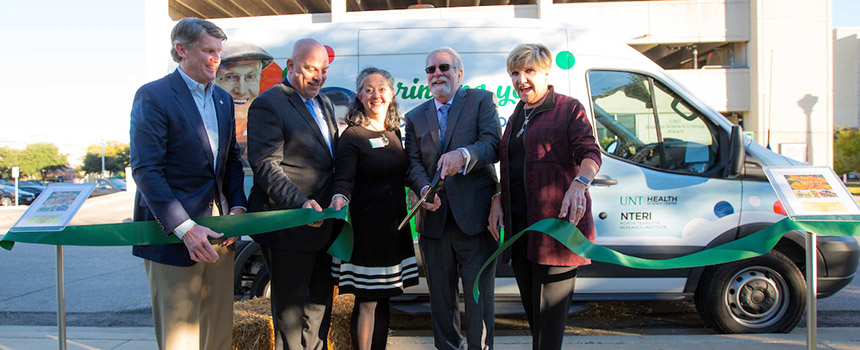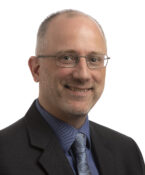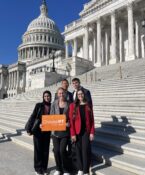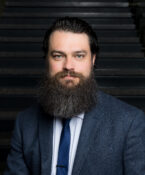Bringing better vision to Fort Worth children
By Jan Jarvis
One-by-one, the preschoolers inched into the darkened room, where they came face-to-face with what looked like a camera.
“We’re going to take a picture of your eye,” said Ricardo Belmares, a PhD candidate at UNT Health Science Center. “Be still, be still. Beautiful.”
In a matter of seconds, the preschoolers’ vision screenings were finished without a single tear or grimace. It took just seconds to determine if they had poor vision that could stand in the way of their success in school.
This fall, the Mobile Vision Screening Program was introduced by the North Texas Eye Research Institute as a way to reach out to preschoolers in the Fort Worth school district and Child Care Associates. By identifying and correcting vision problems so early, the hope is that preschoolers will go on to have greater success in the classroom, said Abe Clark, PhD, Professor and Executive Director, North Texas Eye Research Institute.
Volunteers already have screened more than 1,400 children in 20 schools across Fort Worth. About 35 percent of the children needed referrals for further care, including one child with a congenital cataract that was causing amblyopia, also called lazy eye, and another with a rare, life-threatening intraocular tumor.
“We have seen a number of kids with severe myopia and severe stigmatism,” Dr. Clark said. “It’s a wonder they could see anything.”
 At a ribbon-cutting ceremony on Oct. 30 that included Fort Worth Mayor Betsy Price and Fort Worth ISD Superintendent Kent Scribner, PhD, UNTHSC leaders praised community partners such as the Lions Club for working together to help improve the lives of North Texas children.
At a ribbon-cutting ceremony on Oct. 30 that included Fort Worth Mayor Betsy Price and Fort Worth ISD Superintendent Kent Scribner, PhD, UNTHSC leaders praised community partners such as the Lions Club for working together to help improve the lives of North Texas children.
“I’m proud of what this is going to do for children in our community,” said Dr. Michael Williams, UNTHSC President. “We preach collaboration and partnership, and this program is a perfect example.”
Dr. Scribner said impaired vision inhibits learning during a child’s critical early years of schooling.
“Early literacy cannot happen in the school building alone,” Dr. Scribner said. “When we talk about working with the community – that’s not lip service. This collaboration is essential.”
Hispanic children are at an especially high risk, with 38 percent of impairment cases occurring in this population, according to JAMA Ophthalmology. The percentage of Hispanic children affected by vision problems is expected to increase to 44 percent by 2060, with children in Texas, California and Florida having the most cases.
The vision screening program is focusing on neighborhood schools with more Hispanic children because of their higher incidence of astigmatism, Dr. Clark said. Screenings also have taken place at Head Start programs and child daycare centers.
During screenings, volunteers use a device called a refractometer to test young children for vision problems. The device, which looks like a camera with a funny face on the lens, uses infrared light to read the child’s vision. It’s especially well-suited for young children because it does not require the child to read letters or describe images they see.
This is the first year that the state’s public schools have allowed the use of the device as the primary means of testing vision. A philanthropic gift made the purchase of the four devices possible.
The refractometers are amazingly efficient, Dr. Clark said.
“We can do 120 kids in an hour,” he said. “We’ve been able test as young as six months old by having the mother hold them while we go behind her and get the child’s reading.”






Social media